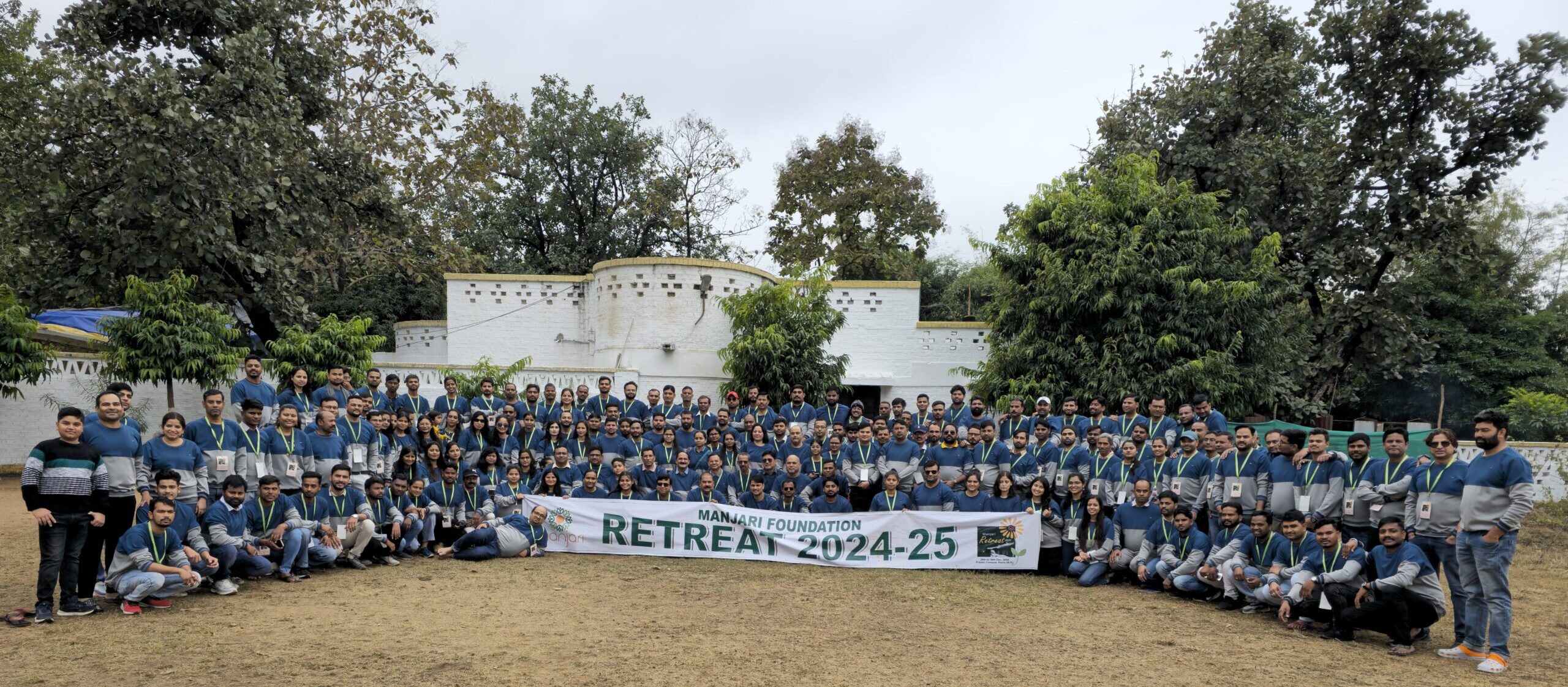Dholpur, Jan 1 : In 2015, the journey of Manjari began in the small district of Dholpur, Rajasthan, with just four individuals and a vision to “empower women to lead change”. A decade later, that vision has blossomed into a flourishing organization, spreading its roots across Rajasthan, Uttar Pradesh, Uttarakhand, and Madhya Pradesh, and transforming the lives of millions of women. From a humble beginning, Manjari has grown into a leading force in the development sector, now supported by a strong team of over 250 members.
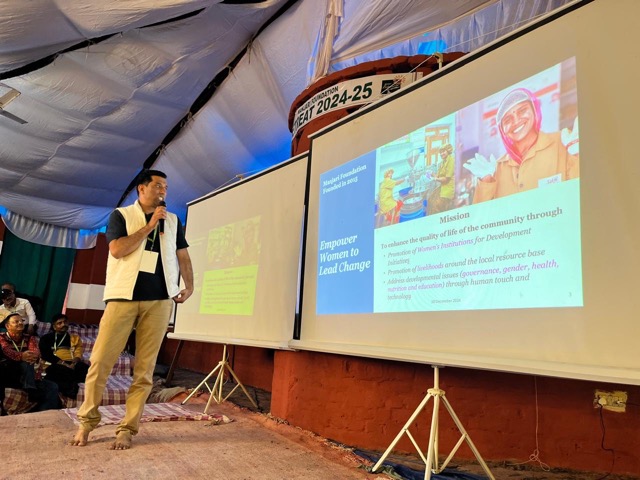
At the PRADAN campus in Kesla, Itarsi, Madhya Pradesh, Manjari hosted its annual retreat, bringing together over 200 team members. The three-day event provided an opportunity to reflect on the progress made over the last decade and deliberate on the path ahead. During the retreat, Naresh Nain from Manjari shared insights into the organization’s growth, highlighting that from a starting fund of ₹12.5 lakh in 2015, it has grown to over ₹35 crore, marking a remarkable 280% growth in just 10 years.
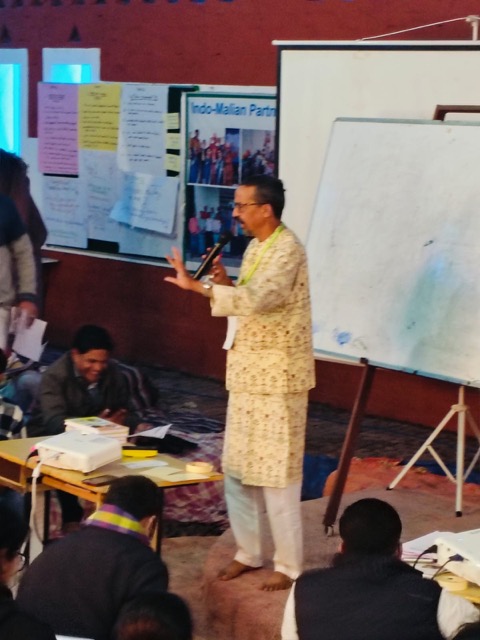
Harish Vashistha, the retreat facilitator, conducted a variety of team-building exercises and interactive games to strengthen the sense of collaboration within the Manjari team. He also organized diverse programs and led a reflective session to understand the team’s thoughts on the organization’s vision and mission. His lively and engaging style kept the energy high, ensuring active participation from all 200 attendees over the three days.
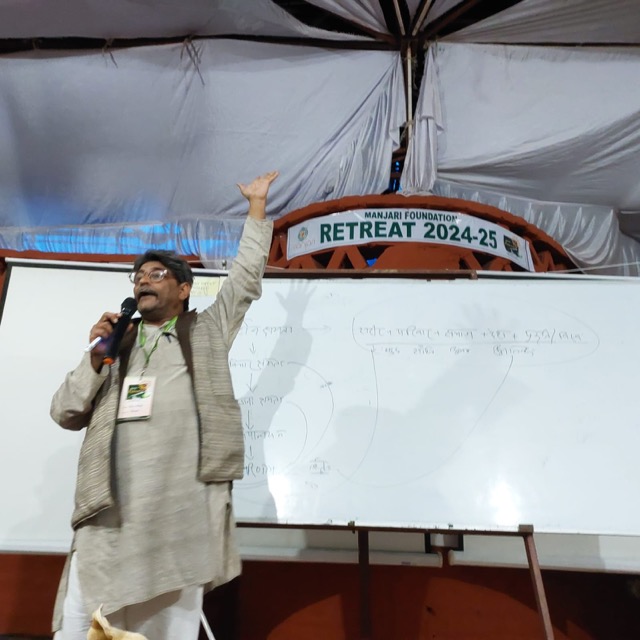
Dada Prem Singh from Banda, Uttar Pradesh, addressed the Manjari team on the topic of regenerative farming. Speaking to the 250-strong Manjari family, he asked, “Where has the relentless pursuit of development taken us? We are now paying the price—there’s no clean air, no pure water, no healthy food, and no good health left.” Dada shared his solution for this destruction: regenerative farming, outlining its five guiding principles for farmers:
- Allocate one-third of land for forests.
- Set aside one-fifth to one-tenth of land for ponds.
- Use the remaining land for household farming.
- Focus on processing and exchanging goods.
- Practice generosity and giving back.
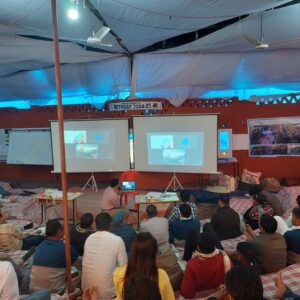

Kanta Singh from UN Women engaged with the Manjari team, stressing the need for greater female participation in the development sector. She highlighted that the language of women’s empowerment is more relevant today than ever. Moving forward, she identified three key focus areas:
- Greater recognition for those working with women.
- Addressing the impact of climate change.
- Boosting the role of women in leadership, with an emphasis on their increased share in decision-making roles.

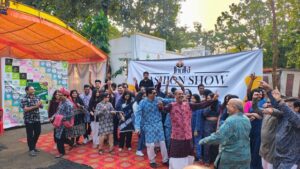
During this event, Manjari’s rural women’s textile unit organized a fashion show. The garments, created by rural women and designed by Manjari’s textile designer Kiren, were showcased, with Kiren also overseeing the entire concept and planning of the fashion show.
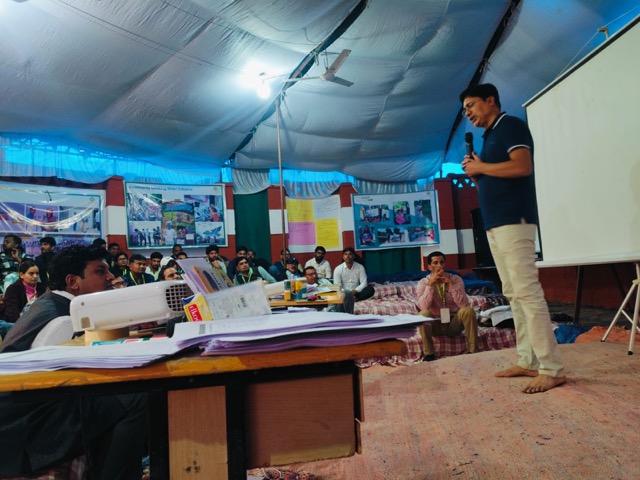
On the third day of the retreat, Manjari Foundation honored its employees and showcased a film summarizing the entire three-day session. In his closing speech, Sanjay, the ED of Manjari Foundation, thanked all the team members for their support throughout the journey and presented a roadmap for the next ten years. He also advised the team not to idolize any individual but instead follow their ideas and philosophy, to avoid hero worship and stay focused on the path they’ve laid out.

